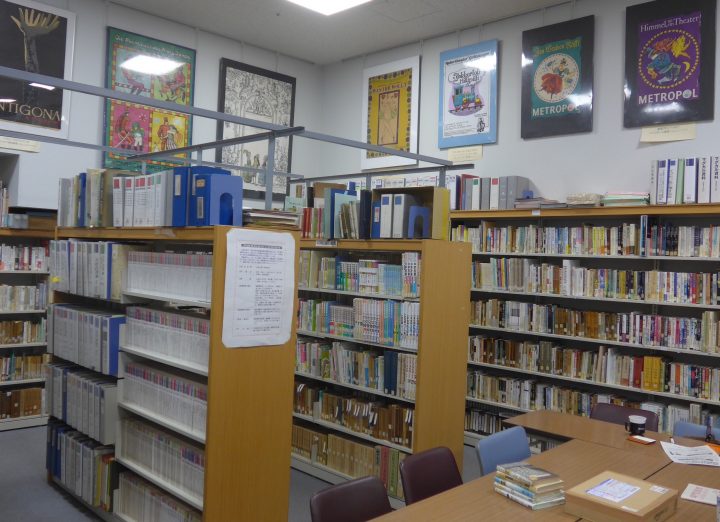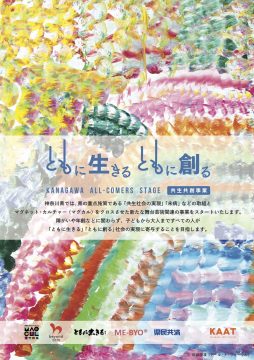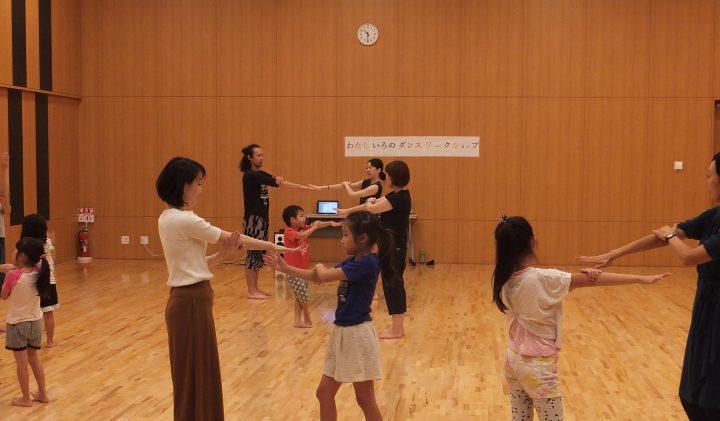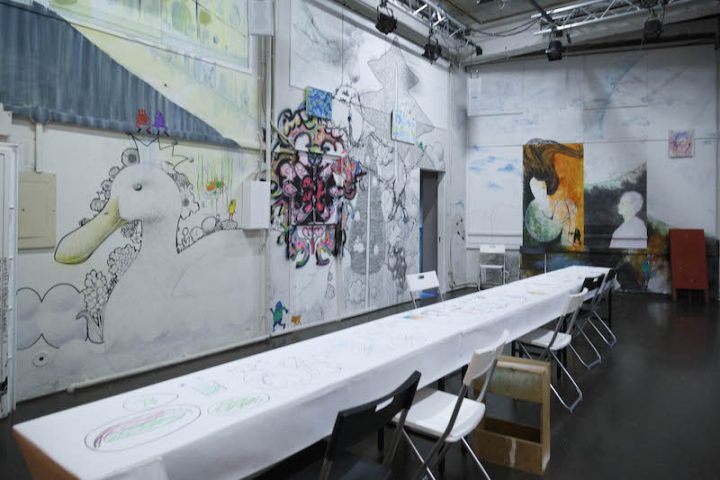Words from Director Tadashi Suzuki - Record of the after-talk for SCOT's "Trojan Women"
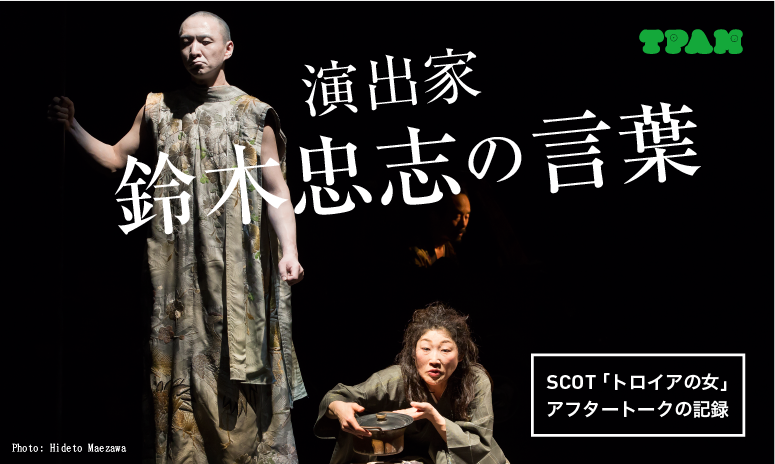
The Trojan Women was performed again at TPAM2015, an international performing arts meeting held in Yokohama from February 7th (Sat) to February 15th (Sun). The work, which was revived for the first time in 25 years by the theater company "SCOT," based in Toga Village, Toyama Prefecture, under the direction of world-renowned director Suzuki Tadashi, made a powerful appeal to the audience about the violence of war. After the performance, there was a talk with program director Nomura Masayuki, and the audience of a wide range of ages, including from overseas, listened intently to his words.
Interviewer: Masayuki Nomura Cooperation: TPAM
The Dark Side of Modern Society
--The Trojan Women was performed for the first time in 25 years at the "SCOT Summer Season 2014 & 1st Toga Asian Arts Festival" held in Toga Village, Nanto City, Toyama Prefecture last summer. I saw it at Toga and was struck by how even 40 years after its premiere in 1974, it was still a work that poses questions about its own time. In this latest performance, in the large space of the Kanagawa Arts Theatre Hall, it was even more impressive to see the play seem to carry a great darkness at the back of the stage.
Suzuki: Digital civilization has quickly connected the world through networks, so it may seem like it has brightened the world, but on the other hand, it has created darkness in the hearts of people. The same can be said for the Islamic State, but the recent murders in Japan seem to suggest that the desires and instincts that modern people thought they had overcome have suddenly resurrected and erupted in an absurd way.
This "Trojan Women" is not a war as you might imagine. It depicts the desire to completely annihilate one's opponent or enemy. There is no dialogue or negotiation with the other party, just annihilation of their existence.
The US president has also said that he will destroy the Islamic State. President Bush used the word "crusade" during the Iraq War and even invoked the God of the Old Testament to justify his actions.
The leader of the Islamic State also talks about recreating the caliphate, but it seems that religion itself has entered the political scene and is now being used to justify their actions. Religion as a political tool has come to the forefront. I think it's amazing how "The Trojan Women" was written by someone two thousand and several hundred years ago about the issues of war and religion, yet it truly reflects modern issues.
Euripides is a Greek man, and he denounces the inhumane acts of his own army, the inhumane act of eliminating all enemies. He also writes that religion does not save humanity. What's more, I'm impressed that he writes about the Trojan queen, who was destroyed by Greece, as the main character. It really makes me think that neither humanity nor art have progressed.
People today have forgotten about the people who worried about these things two thousand and several hundred years ago, and are becoming carried away by the delusion of computers and economic prosperity. Their hearts are truly in darkness.
--Indeed, after the Toga performance last summer, and then the performance at Kichijoji Theater in Tokyo at the end of last year, and now at TPAM, I have continued to see the work, and I feel that the world situation is drawing closer to the work, and that the message contained in "The Trojan Women" is becoming more and more vivid.
Murder scenes are not shown on stage, whether in Suzuki's Greek tragedies or Chekhov's plays. In Japan, they don't even show corpses in recent news reports. So when I happen to see the actions of the Islamic State, I feel that their actions are extremely cruel. But then, if you fly drones like the US military does and press a button to kill people, that's not cruel. I think it's even more cruel from the perspective of the person being killed. The guys from the Islamic State are terrible, but the US has also dropped atomic bombs and killed tens of thousands of civilians. And they don't really feel remorseful about it.
In any case, I created this play because I felt that now was the time to clearly call attention to how war and religion can drive people mad.

"The Trojan Women" KAAT Kanagawa Arts Theatre Photo: Hideto Maezawa
What is true internationalization?
--In 1976, you led the Waseda Little Theatre and moved it to Toga Village, where you founded SCOT. Toga Village has since been a site of international activities, including Japan's first international theatre festival, the Toga Festival '82. Could you tell us why you decided to move to Toga Village?
Suzuki: Japan is economically internationalized, but the places where art is created, or the creators, are not. I don't think there are any established systems for accepting people from various countries and working together over long periods of time, or for managing such places. What Japan needs is not international exchange, but the creation of internationalized places, but the values of Japanese society that prioritize economic efficiency and the bureaucratic management system are obstacles to creating such places. Artistic creation is no good if you can't use your time freely and luxuriously, but we are no longer a society that values such things. In particular, theater is a good work because it is a group of living people who get excited, so if you suppress that excited spirit with economic efficiency and management systems, you won't be able to create something great.
The main reason for moving the troupe's creative activities to Toga Village is that the city is a good market for selling products, but not for creativity. It is especially unsuitable for collaboration with foreigners, and it is difficult to concentrate deeply. Good ideas come to you suddenly. If you don't have an environment where everyone can gather and practice right away, it is impossible to create a high-quality work.
--I thought the idea of viewing the city as a market and having your creative space somewhere away from it was quite interesting.
Suzuki: The fish and vegetables we eat are shipped directly from the source, and none of them are made in Tokyo. Land is expensive in Berabou, so no one cultivates fields. Even if we plant radishes, they don't turn out well.
--Having a place where high-quality creativity can take place. And that place needs to be more than just "international exchange," but an "internationalized place" where people from various countries can work together. Toga certainly has that kind of presence. I think that's very important.
Suzuki: The anime and movies made by the Ministry of Economy, Trade and Industry for business purposes are a different matter, but at least intellectual work that is not about making money, but about thinking about what the future of Japan should be and what kind of lifestyle we should aim for, and spiritual work that tries to create those values, cannot be done in big cities in Japan. It would be better to go back in time again, because Shinran and Dogen were active in the Hokuriku region, and Basho and Saigyo were able to do good work because they were removed from the center of power and economics, so I think it is time for Japan to reconsider the traditions of Japanese spiritual culture.
--I moved to Okinawa last year, and my outlook on Japan and neighboring countries has changed since I lived in Tokyo. I also feel like I now have more time to think carefully about things that I didn't have time to think about when I lived in the city.
Suzuki : From now on, politicians, business people, and artists in Japan must be on an equal footing and must decide what kind of Japan we should be, or must assert to other countries that this is where Japan's uniqueness lies. We must say that we can answer many common global issues. At this time, it is important for artists to come to the forefront; for example, it is artists, not politicians, who make us feel the superior national character of other nations. Mozart was German and Austrian, Chekhov was Russian, and in fact we don't know much about the politicians who were active at the time. But they have become a treasure for humanity. This is also true of Euripides.
Politicians and scientists have begun to cooperate on environmental issues, seeing them as a common challenge for all of humanity, but we theatre people also need to take a spiritual approach and identify future challenges for humanity and work together internationally to create a place in Japan where we can raise these issues and work toward resolving them, and I hope that TPAM's activities will be a milestone in this direction, producing talent that can reach a global audience.
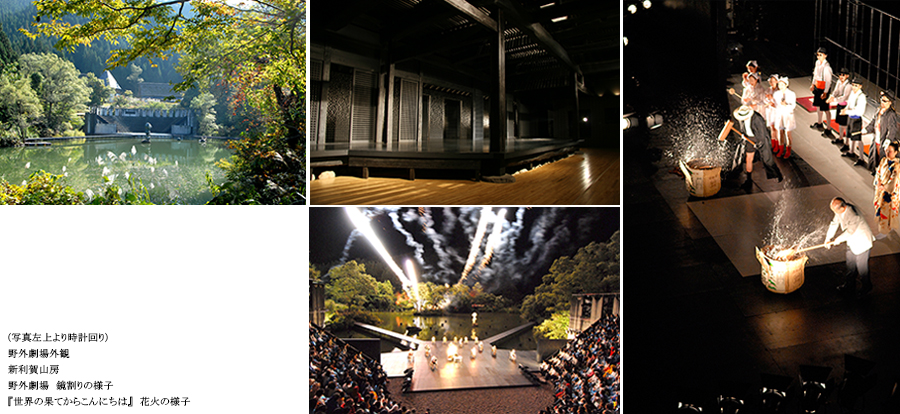
SCOT's base in Toga Village consists of six theaters, rehearsal spaces, and accommodation, and attracts theater people from all over the world.
Suzuki Training Method
-- SCOT's stage productions feature actors who have been trained using the Suzuki Training Method, an actor training method devised by you. Even in The Trojan Women, the performances and physical techniques of the actors with strong energy constantly filled the stage with tension, which became the foundation for conveying violence and cruelty. Could you tell us about the Suzuki Training Method?
For Suzuki artists, technique is important, but the most important thing is whether they have a message for others. Because they have a message, they need to hone their technique, so Japanese theater people are weak in this message. So, inevitably, their technique is also low. For example, in the time of Euripides, they conveyed their message to an audience of 10,000 people with their live voice. It is natural for actors to train their voice and body, how to speak, and so on, and they cannot appear on stage with a body that is not energetic enough for everyday use. I also want to spread my message worldwide, so I came up with Suzuki-style stage acting training methods, and I did not simply invent training techniques for theater in general. Well, critically, many Japanese theater people do theater as a hobby, so it may be said that they do not do theater for a social mission.
Asia's Potential
--This year, TPAM has an "Asia Focus," and if we look at Japan from that perspective, it can be said that it is unique that Japan has been sending out culture to Europe and the US even before globalization progressed. The reason I really wanted to perform SCOT at TPAM this time was because I wanted to properly highlight how Suzuki and others have established Japanese contemporary performing arts - unique performing arts that are different from traditional performing arts - and sent them out to the world. Finally, could you give us your thoughts on Asia, Suzuki?
Suzuki : Asia is a region with many different countries, each with its own outstanding cultural heritage, but it is like a community banquet, and is a form of entertainment. It is entertainment for homogeneous people. In this age of globalization, it would be like enjoying antique junk. Art has the power to convince people with different values that something is important. Of course, junk can become a treasure for everyone depending on how it is used, but Asians have not yet found the path to this. Art is something that builds a bridge between people who do not share the same values, establishes dialogue, and encourages a joint movement toward new possibilities. In the words of Kunio Yanagita, it is conceived on the premise that people do not share the same faith. It is wrong to drag the tail of a single community or nationalism.
I think that the legacy of the West, whether it be Shakespeare or Greek tragedy, is junk, but if that junk is transferred to the right place, to a different context, and placed in a new relationship of encounter with a different culture, it can often become useful for the future of humanity. In that respect, when it comes to the junk of Asia, it is still unclear how to make it shine. There is no point in just copying the West, and there is no point in boasting about the country like politicians do about the old things, I think Asians have realized that much, but the next step is difficult. Anyway, there is no other way than to try and error and do your best, and I truly believe that theater is a job that requires energy.
